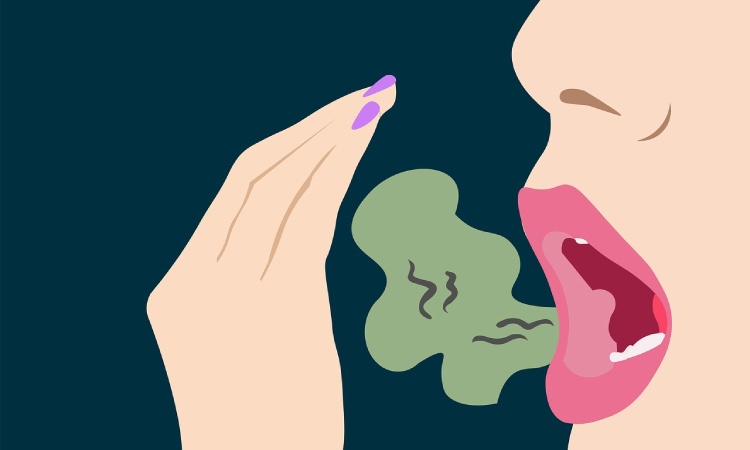We all experience bad breath occasionally. Whether it’s first thing in the morning or after eating a meal heavy in garlic, most bad breath can be easily treated either by brushing your teeth or by overhauling your oral hygiene routine. However, for some patients, bad breath is a chronic condition that is more appropriately called halitosis. Today, we want to talk about some of differences between the two, as well as provide some possible solutions that can leave your breath fresher than ever!

Bad Breath vs. Halitosis
Bad breath is often the result of what you put into your mouth. For example, both onions and garlic contain sulfur compounds that mix with bacteria in your mouth and result in stinky breath. While you sleep, saliva production decreases and no longer helps wash your teeth free of odor-causing bacteria, resulting in morning breath.
On the contrary, halitosis is an underlying health issue. One of the most common culprits behind halitosis is dry mouth, or when people don’t produce enough saliva. Often, dry mouth is a side effect of medications or medical conditions. If this sounds like it could be you, you can try asking your doctor if you can switch medications.
Another common cause of halitosis is the result of post-nasal drip causing the buildup of bacteria and mucus on the tongue. If you often have a bitter, unpleasant taste in your mouth, it may be caused by post-nasal drip. Talk to Dr. Brigman about some possible treatment options for this condition.
Halitosis can also signal a more serious disease. For example, gum disease, infection, cancer, and many other conditions can cause chronic bad breath. If you feel like you have bad breath no matter how carefully you follow your oral hygiene routine, it’s time to visit Dr. Brigman for help. To ask our team any additional questions or to schedule your next visit, contact us today!
Contact Us



